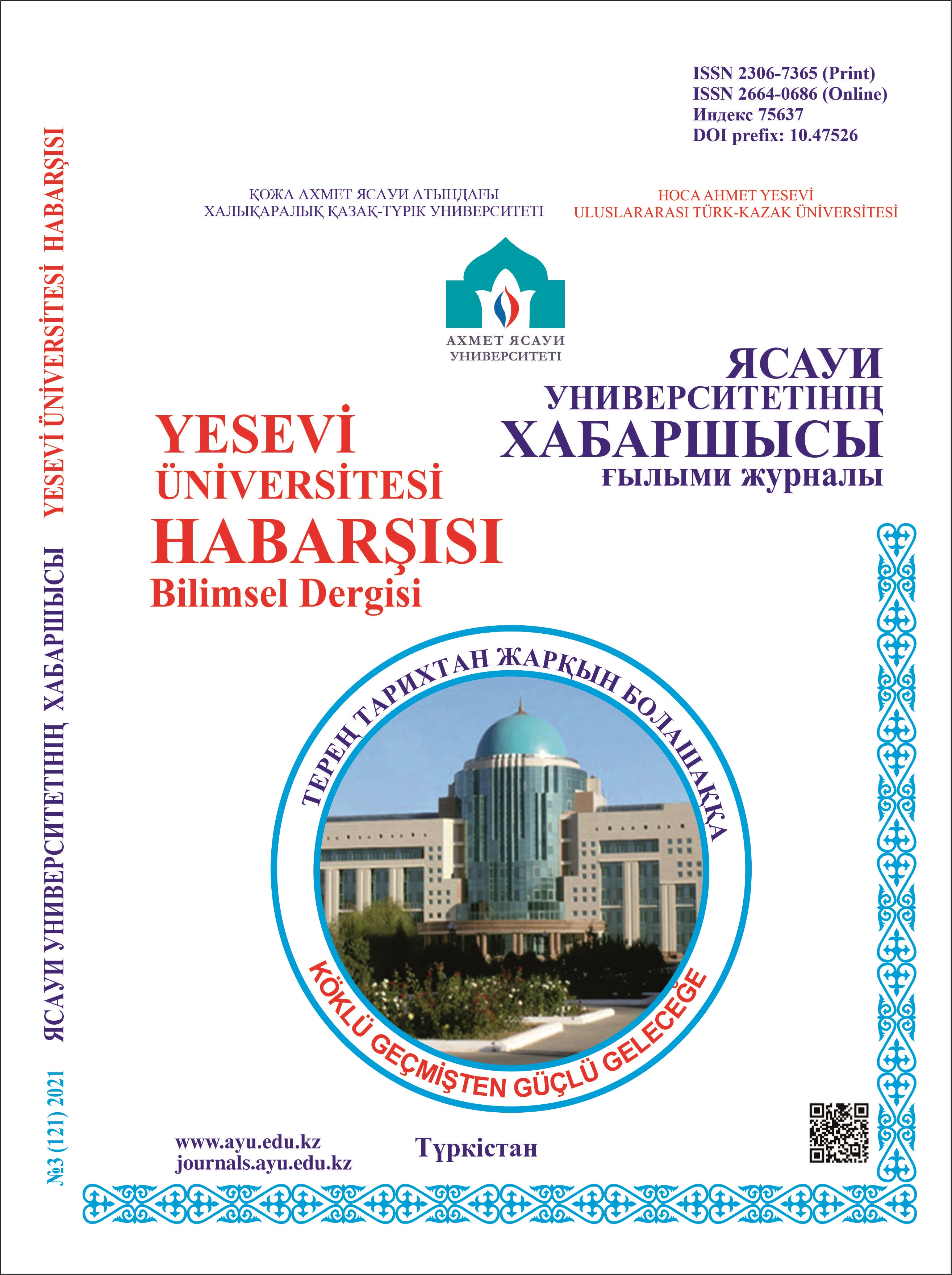Methods of Teaching the Culture of Intercultural Speech Using Artificial Intelligence
106 111
Keywords:
artificial intelligence, intercultural communication, culture of speech, language transformation, language etiquette, cultural code, digital communication.Abstract
This article examines the impact of artificial intelligence (AI) technologies on the change (transformation) of speech culture in intercultural communication from a linguistic point of view. Language models and virtual assistants, which are widely used in the digital space, play a significant role in shaping modern speech norms. Communication actions carried out through AI systems – automatic translations, chatbots, and voice assistants - change linguistic uniqueness, politeness strategies, and communication norms in intercultural dialogue. These changes sometimes lead to the formation of stereotypes, and sometimes to the emergence of new, universal speech patterns. The impact of artificial intelligence systems on speech culture and intercultural communication is profound and complex. AI systems not only process linguistic information, but also shape or distort cultural contexts. Therefore, in the future, with the development of artificial intelligence, it is very important to increase cultural adaptability, attach importance to linguistic etiquette and maintain linguistic and cultural diversity. This research work is aimed at a linguistic analysis of the impact of artificial intelligence on the transformation of speech culture in intercultural communication. Qualitative and comparative methods were used for this purpose. The article analyzes the influence of AI language systems on cultural and linguistic codes, the change and transformation of speech ethics in the context of globalization based on specific examples and scientific data.
References
ПАЙДАЛАНЫЛҒАН ӘДЕБИЕТТЕР ТІЗІМІ
Әбдіқалықова Қ. Мәдениетаралық коммуникация: Теориясы мен тәжірибесі. – Алматы: Қазақ университеті, 2018. – 240 б.
Жұмағұлова Ә. Жасанды интеллект және тілдік мәдениет. – Астана: Сарыарқа, 2020. – 180 б.
Иманқұлова М. Қазақ тілінде жасанды интеллект жүйелері. – Алматы: Ғылым, 2019. – 200 б.
Құсайынова А. Қазақ тіліндегі сыпайылық формалары мен мәдениетаралық қарым-қатынас // Қазақ тілі және әдебиеті. – 2021. – №12(4). – Б. 74–82.
Нұрмұхамедова А. Мәдениетаралық коммуникациядағы мәдениет пен тілдің рөлі. – Алматы: Дәуір, 2022. – 164 б.
Григорьева И.А. Интеркультурная коммуникация в эпоху глобализации. – М.: Высшая школа экономики, 2017. – 210 с.
Бенашвили Р.Л. Язык и культура в межкультурной коммуникации. – М.: Наука, 2016. – 190 с.
Соловьева Т.В. Роль искусственного интеллекта в межкультурной коммуникации. – СПб.: Речь, 2019. – 175 с.
Петрова О.А. Межкультурная коммуникация: теория и практика. – М.: Академический проект, 2020. – 220 с.
Смирнова Н.А. Искусственный интеллект и его влияние на человеческую речь // Московский лингвистический журнал. – 2021. – №32(1). – С. 45–58.11. Hall E.T. Beyond Culture. – New York: Doubleday, 1976. – 256 p.
Kramsch C. Language and Culture. – Oxford: Oxford University Press, 1998. – 244 p.
Wierzbicka A. Cross-cultural Pragmatics: The Semantics of Human Interaction. – Berlin: Mouton de Gruyter, 2003. – 360 p.
Hymes D. Foundations in Sociolinguistics: An Ethnographic Approach. – Philadelphia: University of Pennsylvania Press, 1974. – 238 p.
Schiffrin D. Approaches to Discourse. – Oxford: Blackwell, 1994. – 435 p.
Ochs E., Schieffelin B.B. The Theory of Culture in Anthropology. – New York: Oxford University Press, 2011. – 192 p.
Searle J.R. Speech Acts: An Essay in the Philosophy of Language. – Cambridge: Cambridge University Press, 1969. – 203 p.
Brown P., Levinson S.C. Politeness: Some Universals in Language Usage. – Cambridge: Cambridge University Press, 1987. – 345 p.
Leech G. Principles of Pragmatics. – London: Longman, 1983. – 250 p.
Clyne M. Intercultural Communication at Work: Cultural Values in Discourse. – Cambridge: Cambridge University Press, 2005. – 240 p.
REFERENCES
Abdіqalyqova Q. Madenietaralyq kommunikacia: Teoriasy men tazhіribesі [Intercultural Communication: Theory and practice]. – Almaty: Qazaq universitetі, 2018. – 240 b.[in Kazakh]
Zhumagulova A. Zhasandy intellekt zhane tіldіk madeniet [Artificial intelligence and language culture]. – Astana: Saryarqa, 2020. – 180 b. [in Kazakh]
Imanqulova M. Qazaq tіlіnde zhasandy intellekt zhuielerі [Artificial intelligence systems in Kazakh]. – Almaty: Gylym, 2019. – 200 b. [in Kazakh]
Qusaiynova A. Qazaq tіlіndegі sypaiylyq formalary men madenietaralyq qarym-qatynas [Forms of courtesy and intercultural communication in the Kazakh language] // Qazaq tіlі zhane adebietі. – 2021. – №12(4). – B. 74–82. [in Kazakh]
Nurmuhamedova A. Madenietaralyq kommunikaciadagy madeniet pen tіldіn rolі [The role of culture and language in intercultural communication]. – Almaty: Dauіr, 2022. – 164 b. [in Kazakh]
Grigorieva I.A. Interkulturnaia kommunikacia v epohu globalizacii [Intercultural communication in the era of globalization]. – M.: Vysshaia shkola ekonomiki, 2017. – 210 s. [in Russian]
Benashvili R.L. Iazyk i kultura v mezhkulturnoi kommunikacii [Language and culture in intercultural communication]. – M.: Nauka, 2016. – 190 s. [in Russian]
Solovieva T.V. Rol iskusstvennogo intellekta v mezhkulturnoi kommunikacii [The role of artificial intelligence in intercultural communication]. – SPb.: Rech, 2019. – 175 s. [in Russian]
Petrova O.A. Mezhkulturnaia kommunikacia: teoria i praktika [Intercultural communication: theory and practice]. – M.: Akademicheskiy proekt, 2020. – 220 s. [in Russian]
Smirnova N.A. Iskusstvennyi intellekt i ego vlianie na chelovecheskuiu rech [Artificial intelligence and its impact on human speech] // Moskovskiy lingvisticheskiy zhurnal. – 2021. – №32(1). – S. 45-58. [in Russian]
Hall E.T. Beyond Culture. – New York: Doubleday, 1976. – 256 p.
Kramsch C. Language and Culture. – Oxford: Oxford University Press, 1998. – 244 p.
Wierzbicka A. Cross-cultural Pragmatics: The Semantics of Human Interaction. – Berlin: Mouton de Gruyter, 2003. – 360 p.
Hymes D. Foundations in Sociolinguistics: An Ethnographic Approach. – Philadelphia: University of Pennsylvania Press, 1974. – 238 p.
Schiffrin D. Approaches to Discourse. – Oxford: Blackwell, 1994. – 435 p.
Ochs E., Schieffelin B.B. The Theory of Culture in Anthropology. – New York: Oxford University Press, 2011. – 192 p.
Searle J.R. Speech Acts: An Essay in the Philosophy of Language. – Cambridge: Cambridge University Press, 1969. – 203 p.
Brown P., Levinson S.C. Politeness: Some Universals in Language Usage. – Cambridge: Cambridge University Press, 1987. – 345 p.
Leech G. Principles of Pragmatics. – London: Longman, 1983. – 250 p.
Clyne M. Intercultural Communication at Work: Cultural Values in Discourse. – Cambridge: Cambridge University Press, 2005. – 240 p.

